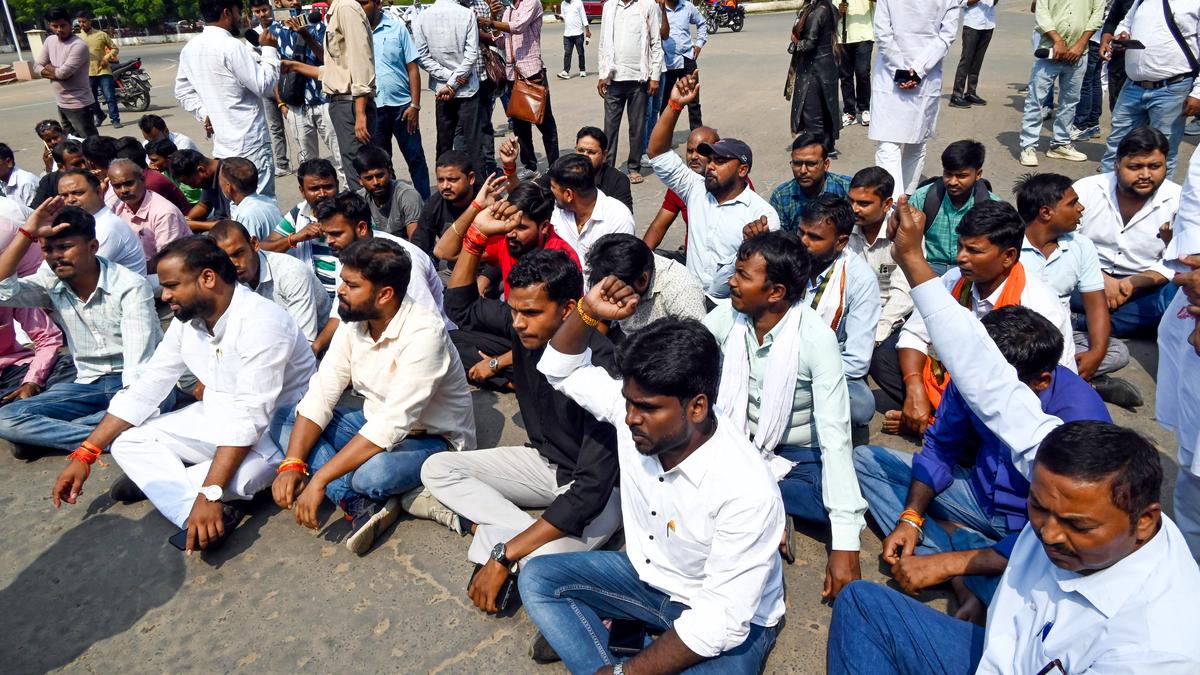ARTICLE AD BOX
Last Updated:October 14, 2025, 18:56 IST
Hansraj and five others were tried for the murder of a man on November 2, 1981

The SC bench further pointed out that no provision in the Children’s Act, 1960, limited the court’s authority to grant relief. (PTI File)
The Supreme Court has reaffirmed that a claim of juvenility under Section 7-A of the Juvenile Justice (Care and Protection of Children) Act, 2000, can be raised at any stage of legal proceedings, even after the final disposal of a special leave petition under Article 136 of the Constitution.
A bench of Justices Dipankar Datta and Augustine George Masih observed that the provision casts an obligation on all courts to consider such a plea and extend appropriate relief if the individual is found to have been a juvenile on the date of the offence.
Referring to its earlier decision in Dharambir v. State (NCT of Delhi) (2010), the court reiterated that anyone below 18 years of age at the time of the offence, even prior to April 1, 2001, would be treated as a juvenile. This remains applicable even if the person had turned 18 before the commencement of the Juvenile Justice Act, 2000, and had already been convicted and sentenced.
The court made the observation while hearing a writ petition filed by Hansraj, a murder convict, who was found to be 12 years and 5 months old on the date of the incident in 1981. The bench ordered his immediate release, noting that his continued incarceration was illegal and violated his right to life under Article 21 of the Constitution.
“Since there is no quarrel with the fact that the petitioner was a child at the time of the offence, and he has been behind bars for more than three years, his liberty has been curtailed not in accordance with procedure established by law. Breach of the right guaranteed by Article 21 is writ large," the bench said.
According to a custody certificate dated August 14, 2025, Hansraj had spent three years, ten months, and 28 days in custody. His date of birth was recorded as June 10, 1969.
Hansraj and five others were tried for the murder of a man on November 2, 1981. The sessions court convicted all six on August 14, 1984, sentencing them to life imprisonment. However, since Hansraj was 16 at the time, the court extended the benefit of the Children’s Act, 1960, and directed that he be sent to a children’s home for reformation rather than prison.
On April 7, 2000, the Allahabad High Court acquitted all the accused. But the Supreme Court, in 2009, set aside the acquittal and restored the conviction and sentence. Hansraj later absconded and was arrested only on May 19, 2022.
Before the apex court, Hansraj’s counsel argued that his detention beyond three years, the maximum permissible under Section 15(1)(g) of the Juvenile Justice Act, amounted to illegal custody and violated his fundamental rights. The state, however, opposed the plea, asserting that since the offence occurred in 1981, the 1960 Act applied and not the JJ Act, 2000. The state also urged the court to deny relief as the petitioner had absconded for several years.
The bench noted that the victim had died of multiple injuries inflicted with knives and lathis, and that Hansraj had been convicted under Section 149 IPC as part of an unlawful assembly, without a specific role being attributed to him.
“Be that as it may, the petitioner has suffered incarceration for more than the period permissible in law," the bench observed. “The purpose for which the sessions court directed that he be kept in a children’s home is no longer feasible now," the court said.
The bench further pointed out that no provision in the Children’s Act, 1960, limited the court’s authority to grant relief, and that subsequent amendments to the juvenile justice laws only reinforced the legislative intent to extend protection to those who were minors at the time of the offence.
“The proviso to Section 9(2) of the Juvenile Justice Act, 2015, is the new avatar of Section 7-A of the JJ Act, 2000," the bench said, underscoring Parliament’s consistent approach towards safeguarding the rights of juveniles in conflict with law.
Allowing the petition, the court directed the Senior Superintendent, Central Jail, Varanasi, to release Hansraj on the basis of a downloaded copy of the order, without insisting on a certified copy.

Sanya Talwar, Editor at Lawbeat, has been heading the organisation since its inception. After practising in courts for over four years, she discovered her affinity for legal journalism. She has worked previousl...Read More
Sanya Talwar, Editor at Lawbeat, has been heading the organisation since its inception. After practising in courts for over four years, she discovered her affinity for legal journalism. She has worked previousl...
Read More
First Published:
October 14, 2025, 18:55 IST
News india ‘He Was Only 12 Years Old’: Supreme Court Orders Release of Man Convicted In 1981 Murder Case
Disclaimer: Comments reflect users’ views, not News18’s. Please keep discussions respectful and constructive. Abusive, defamatory, or illegal comments will be removed. News18 may disable any comment at its discretion. By posting, you agree to our Terms of Use and Privacy Policy.
Read More

 3 hours ago
3
3 hours ago
3









 English (US) ·
English (US) ·